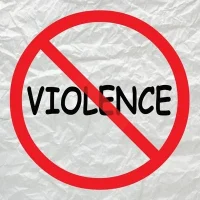Deadline: 25-May-2024
If you are a professional from Albania, Kosovo, Moldova, Montenegro or Ukraine and affiliated with an organisation or institution that prevents or responds to gender-based violence, then this programme is for you!
The program is organized by the Swedish Police Authority Polisen and Kvinna till Kvinna. It is financially supported by the Sida – Board for International Development Cooperation. The goal is to increase the capacity of targeted organisations and authorities to prevent and respond to Gender-Based Violence, according to Rule of Law.
Objectives
- The main objective is to increase the capacity of targeted organisations and authorities to prevent and respond to GBV, in accordance with the rule of law.
Components
- The following components are included in the programme:
- Core concepts and legal frameworks: Root causes and structures upholding GBV. National and international legal frameworks, gender norms and masculinities, research on GBV, power and SRHR (sexual and reproductive health and rights).
- Response to GBV: Implementation of the chain of justice, protection of and support to victims of crime and survivors, and models of cooperation.
- Prevention of GBV: Methods of preventing GBV, such as awareness-raising, rehabilitation techniques and changes in legislation.
- Tools for change: Strategic communication, advocacy, project planning and change management.
Phases
- The training programme is divided into different phases:
- Phase 1 – Preparatory phase
- Preparations such as reading, planning change project and e-learning might be included in this phase.
- Phase 2 – Training in Sweden
- Face-to-face training with sessions and study visits in Sweden.
- Phase 3 – Work on change project
- The participants focus on working on their ongoing change projects.
- Phase 4 – Training in regional country, TBC
- Focus will be on deepening themes and methods, as well as gaining experience on site from a new context. Digital sessions might be held during this phase.
- Phase 5 – Final phase
- The participants will adjust and finalise their change projects. They will present their results during an online grand finale.
- Phase 1 – Preparatory phase
Methodology
- The methodology of the programme is based on four cornerstones:
- Exchange of experience
- Theory/knowledge
- Methods and tools
- Change projects
- The programme builds on a continuous exchange of experiences and mutual learning, where all participants contribute actively.
- It uses a variety of pedagogical methods for learning and includes study visits.
- The number of participants is limited to a maximum of 30.
What is unique about the programme?
- Advanced training with experts, practitioners and academics.
- A participatory and interactive programme with a mixture of qualified participants from both government and civil society.
- Exchange of experiences, networking and cooperation with professionals within the same field from different countries.
- Individual and group coaching, to be able to successfully implement participants’ projects for change.
Outcomes
- This will be achieved by reaching the following outcomes:
- The participants actively use gained knowledge, practical methods and tools to prevent and respond to GBV.
- Targeted authorities and organisations apply and formalise gained knowledge, methods, tools and guidelines in their work.
- The participants use the contacts and network of the programme to improve cooperation and coordination in the field of GBV.
Target Groups
- The following countries are invited to nominate candidates: Albania, Kosovo, Montenegro, Moldova and Ukraine. Applications from other countries will not be considered.
- Only candidates nominated by a formal national organisation and in accordance with national legislation will be considered.
- The target group is professionals who have a mandate to run processes, i.e. middle or senior level management, working for strategic authorities and organisations:
- Police
- Prosecutors
- Judges
- Prison and probation service
- Social services/municipalities
- Civil society organisations working to counteract GBV
- Shelters
- Health professionals and forensic doctors
- Relevant ministries
- Relevant higher education institutions
- Media
Eligibility Criteria
- The programme welcomes applicants from local, regional and national levels. They strive to ensure a mixture of participants in terms of gender, sector and ethnic identity, to promote a dynamic atmosphere during the training programme and the development of international and national networks.
- The training programme will be organised and conducted in English, without any interpretation or translations. Proficiency in English must be certified on the application form.
- Computers, e-mail and other digital channels for communication will be used continuously in the programme, so each participant needs to have basic computer skills, a telephone and a valid e-mail address.
- If selected, the participants will be obliged to participate in all phases. Substitutes will not be accepted for any phase. The nominating organisation must sign a letter of commitment before the start of the programme.
For more information, visit Sida.









































